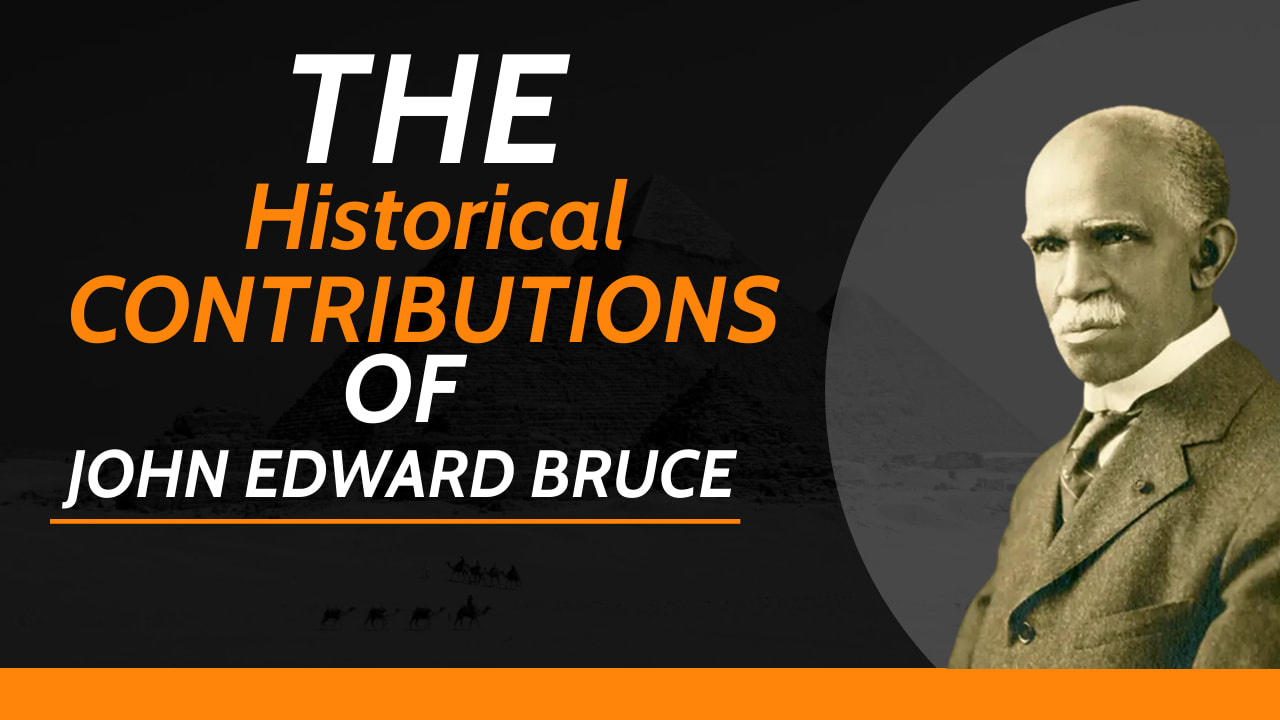|
John Edward Bruce was born on February 22, 1856, in Piscataway, Maryland, and was a pioneering African-American historian, journalist, and civil rights activist who made significant contributions to the advancement of African-American history in the late 19th and early 20th centuries. Bruce was born into slavery, but he and his family gained their freedom after escaping slavery with his mother and fleeing to Washington D.C. Growing up in Connecticut, he displayed a keen interest in education and learning from an early age. Bruce was able to enroll in an integrated school because of his family’s relationship with a Senator from Missouri. He then attended Howard University for three months before unenrolling. He never furthered his education formally, all of his education from this point was self-taught. Bruce's passion for writing and storytelling led him to a career in journalism at the age of 18. In 1874 he began his career as a messenger for the associate editor of the New York Times. He helped found several prominent African-American newspapers, including The Argos Weekly, The Sunday Item, and The Republican. In addition to founding his own newspapers, he managed and contributed to several other newspapers. In addition to using his pen to bring attention to the lack of civil rights for black Americans, he became a highly sought-after lecturer, speaking about black history and the lynching's of blacks in America. In 1890, Bruce became a member of the Afro-American League, the first civil rights group in the United States, The Afro-American League was later reformed into the Afro-American Council. In 1908, he moved to Yonkers, New York, and founded the newspaper The Weekly Standard. Recognizing the lack of accurate and comprehensive records of African-American history, Bruce dedicated himself to historical research and scholarship. He embarked on a mission to uncover and document the contributions of African Americans throughout history, challenging prevailing narratives that often ignored or downplayed their achievements. Bruce’s dedication led him to collaborate with black historians, leaders, and intellectuals such as Arturo Schomburg and Marcus Garvey. Bruce’s relationship with Schomburg led to the founding of the Negro Society for Historical Research in 1911. The Negro Society united black intellectuals from across the African diaspora, which helped to create the foundation of the Schomburg Center for Research in Black Culture, in Harlem, New York. John Edward Bruce's contributions to African-American history, journalism, and civil rights advocacy are immeasurable. He played a pivotal role in challenging stereotypes and promoting a more accurate understanding of African-American history. His dedication to historical research and documentation paved the way for future scholars and historians to continue uncovering and sharing the stories of African Americans who were marginalized or ignored by mainstream historical accounts. John Edward Bruce passed away on August 7, 1924. His work serves as a testament to the power of education, perseverance, and a commitment to telling the untold stories of African people.
0 Comments
Leave a Reply. |
Details
Categories
All
Click Here to join our mailing list
|
Contact Us: |
Connect With Us |
Site powered by PIT Web Design


 RSS Feed
RSS Feed



